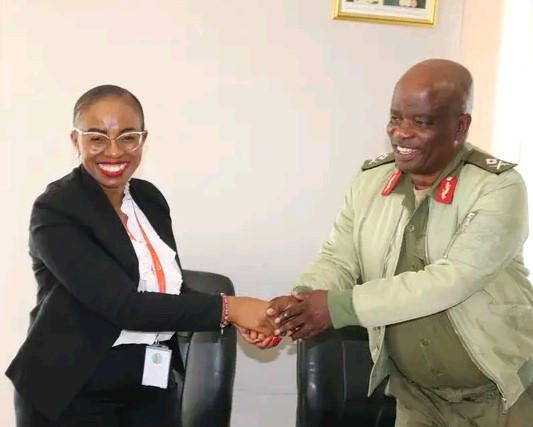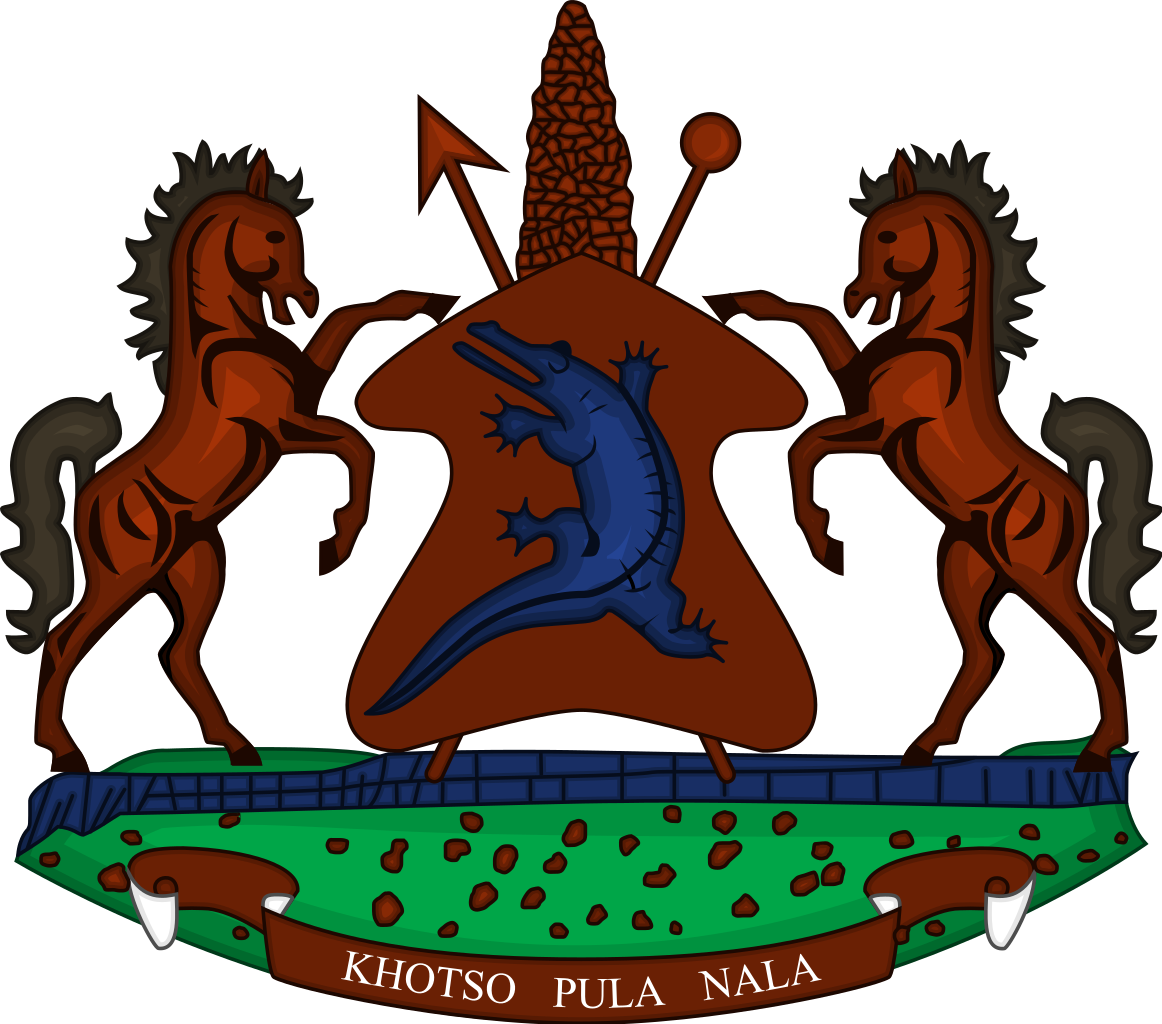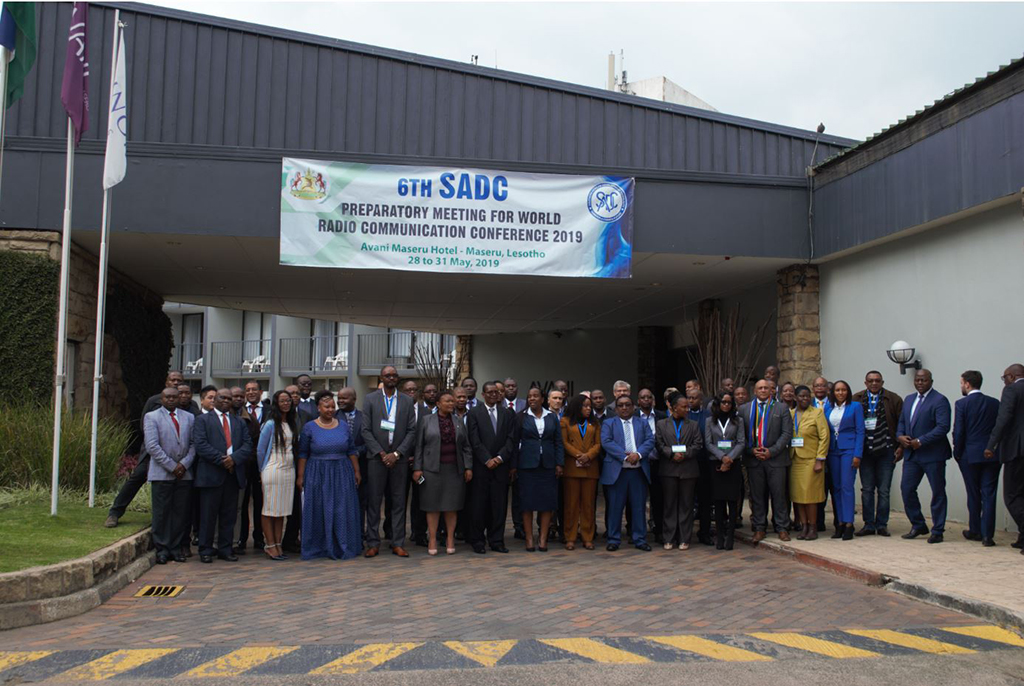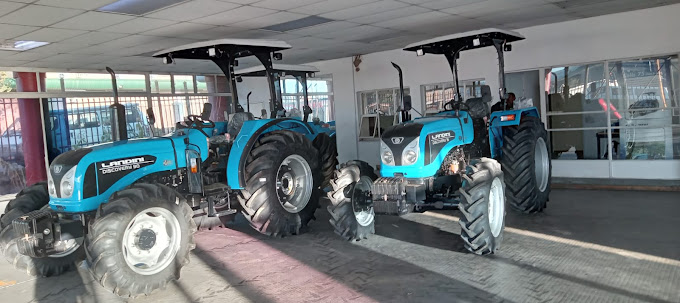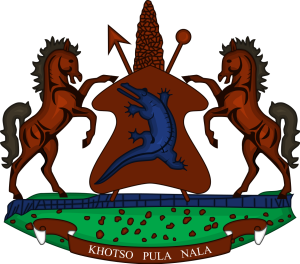The Principal Secretary for the Ministry of Communications, Science and Technology says radio frequency spectrum is a scarce resource and as such minds should be applied to the technical studies in different agenda Items as a basis for assessment while also bearing in mind global technological trends.
Ms. ‘Mabotle Damane said this when officiating a four day Southern African Development Community (SADC) Preparatory Meeting for World Radio Communication held in Maseru on Tuesday. She said the meeting is intended for them to seek common positions that will ensure that they will have the radio frequency spectrum that will facilitate the deployment of Information and Communications Technology (ICT) services to achieve Sustainable Development Goals (SDGs), African Union Agenda 2063 and also Lesotho’s National Strategic Development Goals.
She added that while deliberating, they should bear in mind the status of ICT infrastructure within SADC and formulate common positions that will address the needs of the region.
She said radio frequency spectrum is vital to ensure that there is reliable communication to keep the citizens informed about possible disaster incidences and put mitigation measures in place.
She expressed her expectation and desire that the participants will strive to allocate spectrum to services that best address the SADC common challenges and promote a connected SADC.
“At the moment, we are faced with numerous challenges such as the provision of broadband services to our citizens as well as the threats emanating from climate change,” she said further noting that they are all aware of the negative effects of climate change in the SADC Region, saying there is need to modernise and improve techniques to ensure their readiness during natural disasters such the recent cyclones that hit the Eastern Coast of Southern Africa and affected Mozambique, Zimbabwe, Malawi, Comoros Islands and Tanzania’.
Ms. Damane urged involved in the discussion on spectrum solutions to address all identified conditions to ensure that nations within the region enjoy ICT solutions irrespective of their geographical location, saying as SADC member states they aim for common future.
In conclusion, she urged participants to work together and maintain the spirit of cooperation and compromise in preparation of the main conference to be held in Egypt later this year whereby the outcomes of the conference would meet common SADC interests in use of the radio frequency.
At the same meeting, Senior Programme Officer ICT and SADC Secretariat, Dr George Ah-Thew said they are 90 days from the fourth and last Africa Preparatory meeting for World Radio Communication 2019 and 145 days away from the main conference saying the commitment places on the importance of spectrum as one of the main vehicles to bring about wireless technologies for the sustainable development of Lesotho and the SADC Region.
He commended the industry for the good turnout, commenting that it is high time that they start trials in the SADC Region and that Airbus and OneWeb have launched six LEO satellites for Internet Access in February while last week SpaceX launched 60 LEO satellites for Internet Access, saying he has not heard of one trial in a SADC Member State.
He added that SADC Member States continue to explore affordable broadband technologies to bridge the digital divide and also implement the SADC Declaration on the Fourth Industrial Revolution using ICTs and that they are also part of a larger market for wireless technologies but no trials are taking place in their soil hence called for help to change that.
“I n the SADC Region, for every four people, three have a mobile phone while only one is an internet user,” he said, noting that there is a need for better priced internet access to bridge the internet gap.
He added that to complement the work, spectrum must be released for the deployment of new wireless technologies that promise to be more cost effective.
“Let radio frequency spectrum not be an excuse for the lack of services. Trials of 5G have started in the SADC Region and should continue but we should also be looking at how to ensure the availability of user devices,” added Dr Ah-Thew.
He expressed the need to step up their game in promoting the empowerment of women and for them to be at the forefront participating in the World Radio Communication conference process especially in the area of radio frequency field and decision making process where they need to also contribute and make an impact.
On the other hand, Representative from Namibia and Chair of SADC, Mr. Filemon Johannes said the meeting is intended to address matters which could not be addressed in previous meeting, saying the conference to be in October this year will discuss the global radio management spectrum, satellite orbital spots, limited natural resources whose increased demand has been notable from large growing number of services such as fixed mobile, broadcasting, emergency telecommunication, meteorology to mention a few.
He called upon all to consider spectrum management as their business and a business which should be at their hearts due to scarcity and can only fit their needs in that much allocated to them.
He stressed that spectrum respects no geographical boundaries hence the need to disregard the territorial borders and see ourselves as one community sharing the same natural resources.
‘We are only a handful of Member States but the decisions we are going to make will affect the masses therefore we should work towards reaching the decision that will benefit us all including the citizens’, he added.
World Radio Communication conferences (WRC) are held every three to four years. It is the job of WRC to review, and, if necessary, revise the Radio Regulations, the international treaty governing the use of the radio-frequency spectrum and the geostationary-satellite and non-geostationary-satellite orbits. Revisions are made on the basis of an agenda determined by the ITU Council, which takes into account recommendations made by previous World Radio Communication conferences.
The general scope of the agenda of World Radio Communication conferences is established four to six years in advance, with the final agenda set by the ITU Council two years before the conference, with the concurrence of a majority of Member States.
The main conference will be in Egypt from October 28 to November 22 this year.
Source: LENA 29/05/2019
